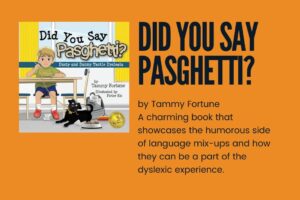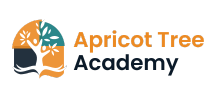
The Umbrella of Phonological Awareness: Building the Foundation for Reading Success
- Posted by Apricot Tree Academy
- Categories Dyslexia
- Date October 8, 2024
- Comments 0 comment
The Umbrella of Phonological Awareness: Building the Foundation for Reading Success
As parents, we want nothing more than to see our children succeed, especially when it comes to learning how to read. But for children with dyslexia, reading can feel like an insurmountable challenge. Dyslexia affects the way the brain processes written language, making it difficult for children to recognize words, decode letters, and make connections between sounds. This can lead to frustration, confusion, and a reluctance to read.
The key to helping children with dyslexia lies in understanding and strengthening phonological awareness, the very foundation of reading. Phonological awareness is often described as an “umbrella” term because it encompasses a variety of skills that children need to master before they can read fluently. Let’s break down the components of phonological awareness and explain why it’s so important for children with dyslexia.
What Is Phonological Awareness?
Phonological awareness refers to the ability to recognize and manipulate the sounds in spoken language. It’s an essential skill for children as they learn to connect sounds with letters and words. Think of it as the building block of reading—it helps children understand that words are made up of smaller sound units, which they need to break down and blend together to make sense of written language.
Without strong phonological awareness, reading can feel like trying to solve a puzzle with missing pieces.
The Components of Phonological Awareness
Phonological awareness covers a range of skills that help children become more aware of the sounds in words. Here’s a breakdown of the key components under this umbrella:
-
Word Awareness
Children learn to recognize that sentences are made up of individual words. For example, “The cat is black” is made up of four distinct words. -
Syllable Awareness
Syllable awareness involves understanding that words can be broken down into syllables, the parts of words that contain vowel sounds. Clapping out the syllables in words like “ba-na-na” (three claps) helps children grasp this concept. -
Onset and Rime
This refers to the ability to divide words into two parts: the onset (the initial consonant or consonant cluster) and the rime (the vowel and any following consonants). For instance, in the word “cat,” the onset is /c/ and the rime is /-at/. This helps children recognize patterns in words. -
Rhyme Awareness
Recognizing and creating rhyming words is another important skill. Children begin to understand that words like “bat” and “cat” share the same rime (/at/). -
Phonemic Awareness
Phonemic awareness is the most advanced and critical component of phonological awareness. It refers to the ability to focus on and manipulate individual sounds, or phonemes, in words. Phonemic awareness includes:- Phoneme isolation: Identifying individual sounds (e.g., /b/ in “bat”).
- Phoneme blending: Combining sounds to form words (e.g., /c/ /a/ /t/ becomes “cat”).
- Phoneme segmentation: Breaking a word into its individual sounds (e.g., “dog” becomes /d/ /o/ /g/).
- Phoneme manipulation: Changing or rearranging sounds in words to form new words (e.g., replacing the /c/ in “cat” with /b/ to form “bat”).
-
Alliteration Awareness
Children learn to identify when words start with the same sound, as in the tongue twister “Peter Piper picked a peck of pickled peppers.” -
Sentence Segmentation
This involves understanding that sentences can be broken down into individual words. -
Phonological Memory
This skill refers to the ability to remember and repeat sequences of sounds or words, an important precursor to learning new vocabulary and sentences.
Why Phonological Awareness Is Crucial for Dyslexic Readers
For children with dyslexia, phonological awareness doesn’t always develop naturally, which can make learning to read an uphill battle. Without a strong understanding of how sounds work within words, children can struggle with decoding (sounding out words) and spelling. Dyslexia affects the brain’s ability to process sounds, so children with dyslexia often need more explicit, systematic instruction in these areas.
The good news? Phonological awareness can be taught and strengthened. By building these foundational skills, children with dyslexia can learn to decode words more effectively and eventually become confident, fluent readers.
How Our Fall Tutoring Program Can Help
At Apricot Tree Academy, we understand the unique challenges that children with dyslexia face. Our fall tutoring program is designed to target the key components of phonological awareness and provide children with the tools they need to succeed. Whether your child is struggling with rhyming, syllable awareness, or phonemic manipulation, our expert tutors use evidence-based methods to build their skills step by step.
Through personalized instruction and engaging activities, our program not only strengthens phonological awareness but also boosts your child’s confidence and enjoyment of reading.
Ready to Help Your Child?
If your child has been struggling with reading, they don’t have to go through it alone. Our fall tutoring program is here to provide the support and expertise they need to overcome the challenges of dyslexia and build a strong foundation for reading success.
Sign up today and help your child unlock their reading potential!
You may also like

Book Review: Did You Say Pasghetti?

Book Review: One in Five

